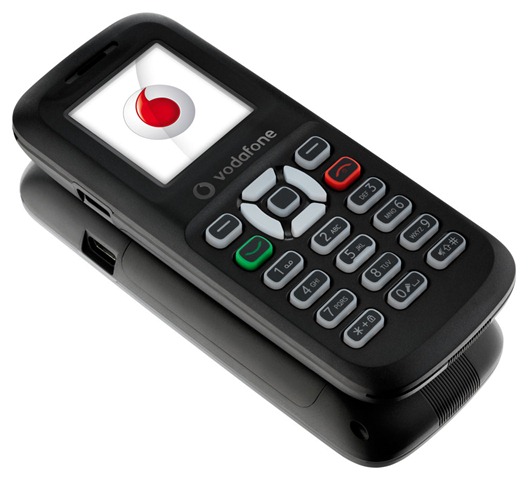Opera Mini is a must have apps for anyone looking to browse the web on a mobile phone without draining the battery or paying expensive data charges. Now Opera has teamed up with Vodafone to bring a custom version of the Opera Mini browser to low cost phones running on 2G Networks

Vodafone announced cheap phones for emerging markets during MWC 2010 But it’s not clear if these phones will get the Opera Mini browser
PRESS RELEASE: Vodafone launches customized version of Opera Mini browser to run on low-cost handsets on 2G networks: Initial roll-out in countries such as India
Vodafone to bring the benefits of the internet to many more people in developing markets : Initial roll-out in countries such as India
April 8, 2010
– Helping bridge the digital divide through combination of new technology, affordable handsets and low cost tariffs
– Bringing a mobile applications experience to millions of customers combined with fast internet browsing of the full internet
– Hugely beneficial for the millions of customers in emerging markets who do not have any other means of regular access to the internet.
Vodafone is seeking to bring the benefits of the internet to more people in developing markets through the launch of a customized version of the Opera Mini browser designed to run on low-cost handsets on 2G networks.
The move aims to enable as many people as possible to experience the internet for the first time, and to enjoy the social advantages it can bring through the spread of email and commerce-based applications.
Vodafone has worked alongside Opera Software to develop an enhanced version of Opera Mini 5 which is able to give a good internet experience on lower- to mid-tier handsets connected to second generation networks.
Since the Opera Mini 5 browser can compress data by up to 90 percent, it requires less processing power on the handset and uses less network capacity, resulting in a richer internet experience in more challenging conditions.
The Opera Mini 5 browser has been embedded in a range of 20 devices as well as being downloadable to over 250 GPRS supported handsets in Vodafone’s customer base.
The move is backed by a string of highly affordable data tariffs designed to give worry-free browsing, with the aim of making a day’s data usage as affordable as possible.
Vodafone is also creating an on-screen browsing experience that is designed to help someone who may have little experience of the internet. The on-screen experience will feature step-by-step, simple instructions in local languages, with a strong emphasis on the use of intuitive icons to help those with lower levels of literacy.
A range of Vodafone applications is also in development, most of them designed to deliver the most social benefits to users such as email, finding a job, buying and selling services and products, learning foreign languages, as well as getting access to global applications.
The initiative is initially being rolled out in India, South Africa, Turkey, Tanzania and Egypt with other markets expected to follow in the near future.
“With this product, we can transform even basic handsets into very capable internet browsing devices, enabling millions of people to enjoy the social and economic aspects of the internet that many already take for granted,” said Jonathan Bill, Vodafone Internet Services Head of Emerging Markets. “By significantly enhancing the customer’s internet experience, this initiative will help to boost local economies by encouraging entrepreneurs to create a range of locally-inspired business models and services.”
“Opera is all about bringing the best internet experience to anyone, anywhere.” said Lars Boilesen, CEO Opera Software. “The internet is the great leveller, and working with Vodafone gives us the opportunity to help bridge the digital divide for millions more worldwide.”
Mobile technology is ideally suited to bringing internet connectivity to developing markets as it is easier to roll out than fixed technology in areas that are hard to reach.
The move is the latest of a string of initiatives launched by Vodafone in order to encourage the wider use of digital communications in developing markets to boost productivity and encourage economic growth.
On 15 February 2010, Vodafone announced the launch of the world’s cheapest voice and text handset: the Vodafone 150, which retails at under $15 USD. The handset, along with the $20 Vodafone 250 handset, will be available in the first instance in India, the Democratic Republic of Congo, Turkey, Mozambique, Qatar, South Africa and Tanzania.
Vodafone also recently announced proposals to launch the M-Pesa money transfer service in South Africa. With approximately 26 million people in South Africa without official bank accounts, M-Pesa will enable millions of mobile phone subscribers to send and receive money via their mobile phones.
At the same time Vodafone has developed a range of solar powered and wind technology driven base stations designed to bring networks into rural areas which may not have their own power supplies.
Vodafone actively supports the United Nation’s Millennium Development Goals aimed at meeting the needs of the world’s poorest communities. With this in mind these initiatives are helping to bridge the digital divide with the world’s developing markets and are designed to bring societal and economic benefits to large communities of people.
